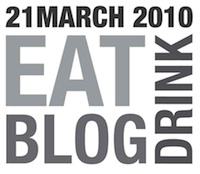 Over coffee at the Smith Street Store in North Hobart this morning I noticed their use of BioCups, a compostable and biodegradable take-away cup. Upon consulting the handy flyer available on the counter I have discovered that these BioCups "provide and environmental, healthy and earth conscious alternative to traditional plastic and foam packaging". Well that's all well and good, but I want to know more about these environmentally friendly cups.
Over coffee at the Smith Street Store in North Hobart this morning I noticed their use of BioCups, a compostable and biodegradable take-away cup. Upon consulting the handy flyer available on the counter I have discovered that these BioCups "provide and environmental, healthy and earth conscious alternative to traditional plastic and foam packaging". Well that's all well and good, but I want to know more about these environmentally friendly cups.This particular brand of cup is supplied in Australia by a company called BioPak. It's not just cups either - you can order a whole range of environmentally products, from biodegradable cling wrap to water soluble laundry bags. But while BioPak "provides Australian companies environmentally friendly solutions by supplying ecologically compatibility raw materials that do not negatively affect a products economic, social or practical usefulness", I'd be interested to take away some of the spin and find out where these cups are made. And by whom.
BioPak products (like many other biodegradable restaurant products) are made from palm oil residue. Now, I hear the words palm oil, and I think of decimated forests and burnt monkeys - palm oil is a huge problem for the environment, mainly due to the large volume of waste generated by its production and the amount of perfectly good trees felled to plant palm oil crops. Essentially, BioPak products are made from something called agricultural fibrous biomass, or to put it simply: cotton residue, rice straw, and palm oil production residue. Because the materials used are a by-product of existing production they make good use of a biomass that would otherwise sit around and damage the environment.
Biodegradable packaging is slowly replacing many oil-based products currently on the market, especially in relation to food packaging. It makes sense - why would you buy organic vegetables wrapped in chemicals? Supermarket mega-chain Coles are in on the action, currently using biodegradable trays to package their organic fresh produce.
I'm trying to find a loop hole with this product, and like most of everything that is designed to be used only once, there probably is. But at the end of the day, if we simply must have single use products then environmentally friendly ones are the way to go. Just don't wrap them in a plastic bag before you toss them in the bin.











1 comment:
Hi All, Richard here from BioPak. I would like to clarify a few points. Firstly our cups are made from paper sourced from FSC and SFI managed plantations. The board is then coated with a bioplastic made from plants (usually corn starch). Regular coffee cups are lined with petroleum based polyethylene. The BioCup is produced in Taiwan and the carbon from the shipping is offset using an accredited tree planting program. We have discontinued all palm fiber products due to concerns over deforestation.
Post a Comment